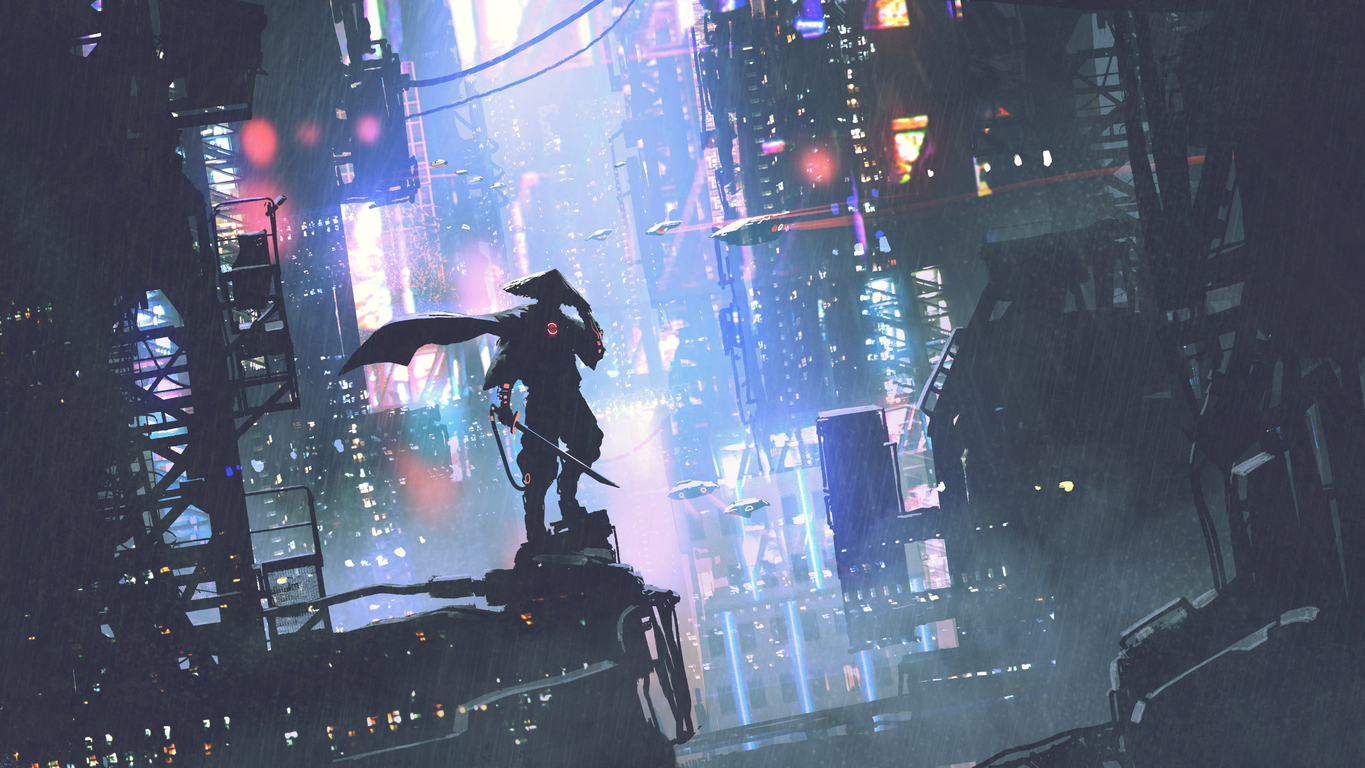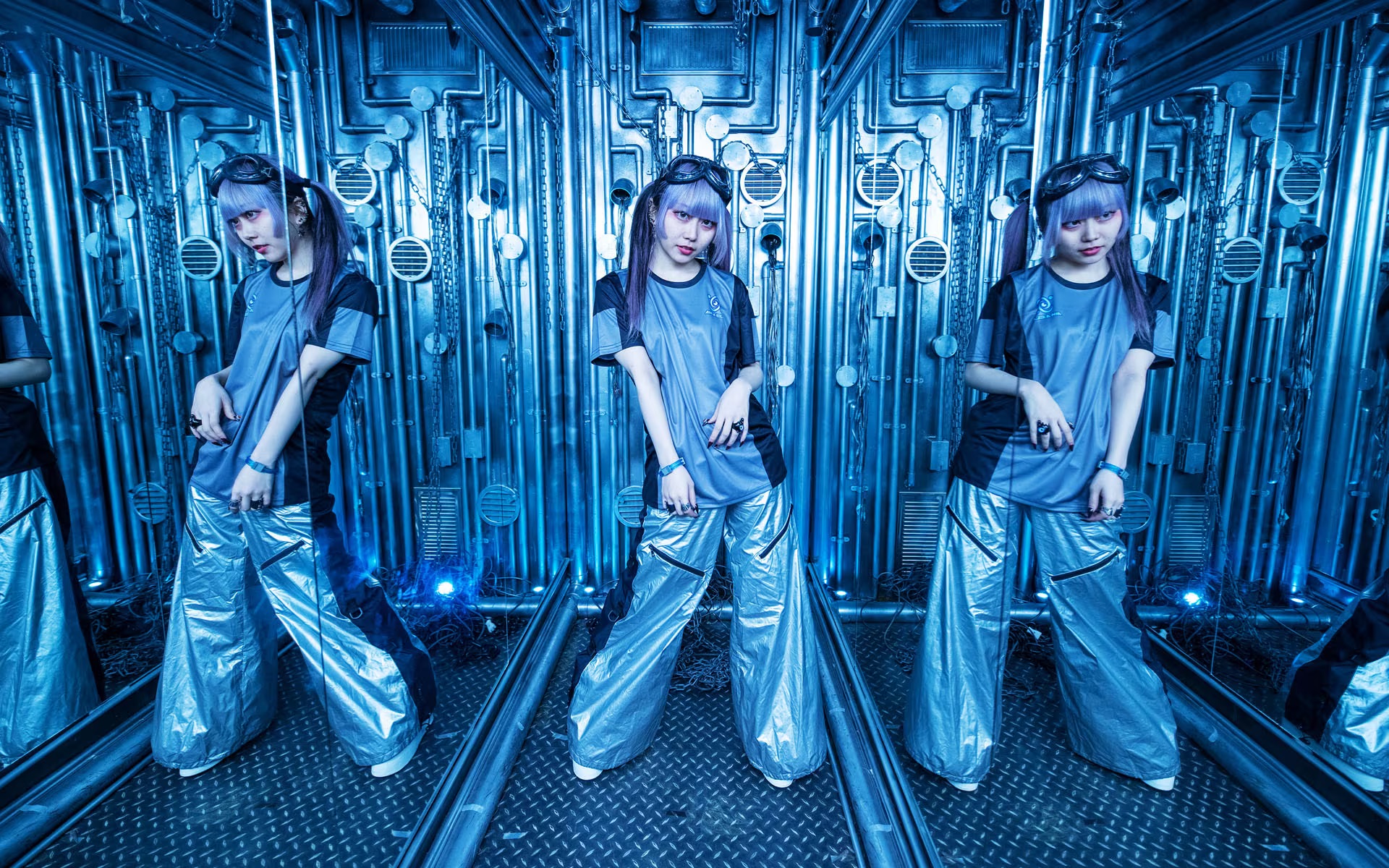In this series, we will be exploring all the fashion subcultures that have made Japan the fashion powerhouse it is today. Born out of the cyberpunk subculture, Japan’s take on cyber fashion is gaining newfound popularity as we start to question the future and move into a world dominated by new algorithms, AI and the metaverse.
Futuristic, technological advancements and artificial intelligence are just some of the things we think of when we hear the words ‘cyber’ and ‘cyberpunk.’ Although the digital age still feels relatively new, these terms aren’t new and have been used since the latter half of the 20th century. Cyberpunk is best described as a subgenre of science fiction that takes place in a dystopian futuristic setting. It centers around themes that essayist William Gibson terms as “lowlife and high tech.” The cyber fashion subgenre started to gain more traction in the 1980s, capturing the imagination of young people across the world.
Image: iStock: satamedia
In Japan, iconic cyberpunk films and technological developments in society all shaped the retro-futuristic aesthetic known as cyber. The style is defined by its use of artificial-looking materials such as vinyl and velour, as well as fluorescent accessories and those made out of mechanical parts. Utilitarian-style items such as cargo jackets and tactical vests are also commonly used to achieve that high-tech look. It goes without saying that cyber fashion also takes many references from video games and other world media such as “The Matrix.” Much like Tokyo’s other fashion subcultures, cyber fashion branches off into other categories such as cybergoth and raver.
The History and Cultural Significance of Cyber Fashion

Image: iStock: Grandfailure
Similar to many of the other Tokyo fashion subcultures, Japan’s cyber fashion emerged during the 1990s in Harajuku. A time in which people were wondering what the fast-approaching new millennium would look like. Yet, the more border cyberpunk movement began two decades earlier. In the United States and United Kingdom, the emergence of cyberpunk was a result of New Wave science fiction literature. Soon after, cyberpunk imagery began to influence fashion with young people in these countries wearing neon and PVC garments to different club events. Notably, this type of cyberpunk fashion, termed cybergoth, had more gothic and dark elements to it. This contrasts with Japan’s take on the style, which often incorporated more bright colors and influences from Y2K fashion.
In Japan, the cyberpunk subculture formed around the 1980s, with the debut of Katsuhiro Otomo’s 1982 manga Akira being the catalyst. The impact this film had on the subculture, both domestically and internationally, is undeniable. After its release, other anime and manga, such as Ghost in the Shell and Cowboy Bebop helped to further popularize cyberpunk aesthetics. Even today, people heavily associate Tokyo with being futuristic and it is still often used as a setting for cyberpunk and dystopian stories. Gibson states that ‘modern Japan simply was cyberpunk.’ Many people still believe this is true, associating Tokyo with city lights, urban structure and technological advancements. It is, therefore, not surprising that fashion is influenced by such imagery.
The leading brands that have shaped cyber style in Japan include Takuya Angel, D/3, PRODUCT_C and Aika Electronics. The fashion magazine KERA, once called KEROUAC, gave creative inspiration to those who wanted to break away from style norms. Although the print version of the magazine was discontinued in 2017, there is still a web version.
Is Cyber Fashion Still Popular?

Image: Akia Electronics
Just by scrolling through the Tokyo Fashion archive, you can see the continued impact cyber fashion has had, especially with young fashion students and designers. There is even a whole category dedicated to it. Aspects of cyber style have also become mainstream. With technology such as AI and the metaverse sparking people’s curiosity and increasingly becoming a part of our everyday lives, more mainstream fashion trends will undoubtedly be inspired by the cyber world. We already have a glimpse of this, with techwear brands like ACRONYM creating innovative garments that have a sci-fi and futuristic feel to them.
Click here to read more.
- External Link
https://savvytokyo.com/
© Savvy Tokyo








:max_bytes(150000):strip_icc()/roundup-writereditor-loved-deals-tout-f5de51f85de145b2b1eb99cdb7b6cb84.jpg)


